Current Projects
ETHIOPIA
Since initial needs assessments and consultations, BGSC teams have continued returning to Gondar University Hospital in Ethiopia for Primary Trauma Care (PTC) courses and for continued monitoring and evaluation. Our team returned recently to lead the fourth PTC course, and for the first time now with surgical officers and general practitioners from primary and district hospitals in attendance; the team also delivered for the first time a case-based nursing trauma course.
Project leaders: Naisan Garraway, Monique McLaughlin
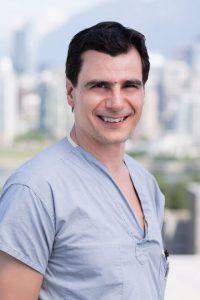 Dr. Naisan Garraway completed medical school after joining the Canadian Armed Forces. He served as the Canadian Military Senior Medical Advisor with NATO in Bosnia-Herzegovina. In 2001 he began a General Surgical residency at UBC in Vancouver. Dr. Garraway completed a one year trauma and two year critical care fellowship also at UBC. He has served 4 tours of duty in Afghanistan at the military hospital in Kandahar and is currently the Medical Director for the Canadian Forces Trauma Training Centre (West). Dr. Garraway is also the Medical Director of the Trauma Program and a General/Trauma Surgeon and ICU Physician on staff at Vancouver General Hospital.
Dr. Naisan Garraway completed medical school after joining the Canadian Armed Forces. He served as the Canadian Military Senior Medical Advisor with NATO in Bosnia-Herzegovina. In 2001 he began a General Surgical residency at UBC in Vancouver. Dr. Garraway completed a one year trauma and two year critical care fellowship also at UBC. He has served 4 tours of duty in Afghanistan at the military hospital in Kandahar and is currently the Medical Director for the Canadian Forces Trauma Training Centre (West). Dr. Garraway is also the Medical Director of the Trauma Program and a General/Trauma Surgeon and ICU Physician on staff at Vancouver General Hospital.
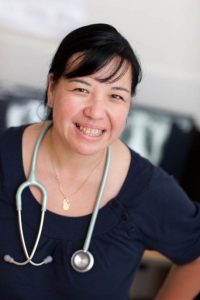
Monique McLaughlin is an Emergency Nurse Practitioner at Vancouver General Hospital.
Team: Richard Simons, , Annie Lalande, Kristin DeGirolamo
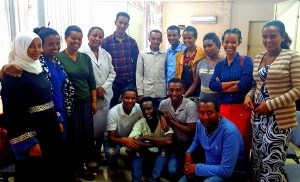
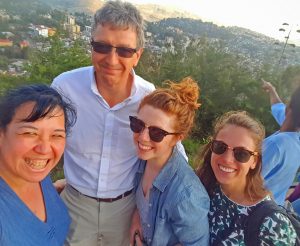
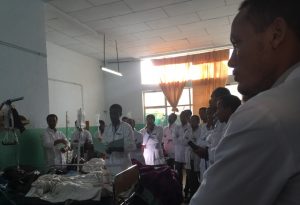
Presentation - UBC Department of Surgery Chung Research Day 2019 - Reflecting on 5 years of Primary Trauma Care course experiences in Gondar, Ethiopia.
Funding for this project has been generously provided by the American Jewish Joint Distribution Committee (JDC). We are deeply appreciative of their ongoing support.

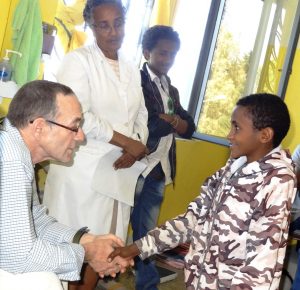 The Spine Deformity Program began in 2015 when its needs assessment reflected the absence of native surgeons providing advanced spinal surgery locally within Ethiopia’s public health system, with no Ethiopian surgeons providing deformity correction surgery for adults or children and no national or local programs in existence for detection of spinal deformity. With financial support from the American Jewish Joint distribution Committee (JDC), many Ethiopian patients travel to the Foundation of Orthopedic and Complex Spine (FOCOS) in Ghana to have surgery; Dr. Rick Hodes, working for the JDC also assesses many spine patients in Ethiopia. However, the number of patients with severe deformity requiring surgery greatly outnumbers existing support.
The Spine Deformity Program began in 2015 when its needs assessment reflected the absence of native surgeons providing advanced spinal surgery locally within Ethiopia’s public health system, with no Ethiopian surgeons providing deformity correction surgery for adults or children and no national or local programs in existence for detection of spinal deformity. With financial support from the American Jewish Joint distribution Committee (JDC), many Ethiopian patients travel to the Foundation of Orthopedic and Complex Spine (FOCOS) in Ghana to have surgery; Dr. Rick Hodes, working for the JDC also assesses many spine patients in Ethiopia. However, the number of patients with severe deformity requiring surgery greatly outnumbers existing support.
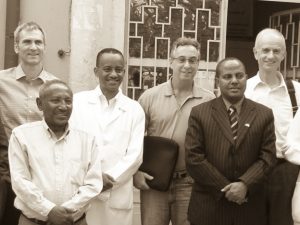
For a sustainable Ethiopian Spine Deformity Program, fundamental components include: (i) Full delivery of care by local Ethiopian professionals – requiring investment in education and mentorship; (ii) Support of the Ethiopian Ministry by the Branch and the JDC for delivery of national priorities and the program; (iii) Engagement with and leadership from local academic groups (Neurosurgery and Orthopedic Departments). Currently the program is growing with development of a Clinical Assessment tool and cell-phone based ‘deformity recognition’ screening tool; mentoring and training opportunities for bilateral clinical exchanges between UBC and Ethiopian trainees; continued relations with both Neurosurgery and Orthopedic Departments at Black Lion hospital; and collaboration enhancement between existing local expertise and the JDC-run spine program.
Project leaders: Chris Reilly, John Street
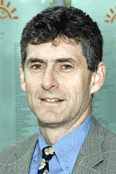 Dr. Chris Reilly is the Head of the Department of Orthopaedic Surgery at BC Children's Hospital and Head of the Division of Pediatric Orthopaedics at the University of British Columbia. He completed his fellowship in Pediatric Orthopaedics at the Texas Scottish Rite Hospital in Dallas. He is a paediatric orthopaedic surgeon specializing in the management of paediatric trauma and spinal deformity. He is also the orthopaedic consultant to the Neuromuscular Clinic. His current research interests include functional and surgical outcomes surrounding pediatric trauma, spinal deformities, neuromuscular conditions and athletic knee injuries.
Dr. Chris Reilly is the Head of the Department of Orthopaedic Surgery at BC Children's Hospital and Head of the Division of Pediatric Orthopaedics at the University of British Columbia. He completed his fellowship in Pediatric Orthopaedics at the Texas Scottish Rite Hospital in Dallas. He is a paediatric orthopaedic surgeon specializing in the management of paediatric trauma and spinal deformity. He is also the orthopaedic consultant to the Neuromuscular Clinic. His current research interests include functional and surgical outcomes surrounding pediatric trauma, spinal deformities, neuromuscular conditions and athletic knee injuries.
 Dr. John Street is an Assistant Professor within the Department of Orthopedics at UBC, in addition to being co-Medical Director of the Complex Spine Program at VGH, Clinical Lead for the Integrated Ambulatory Spine Program and coordinator of the undergraduate and postgraduate education programs. His clinical practice involves the surgical and non-surgical management of adult patients with spinal disorders, across the entire breadth of degenerative and traumatic conditions of the spine.
Dr. John Street is an Assistant Professor within the Department of Orthopedics at UBC, in addition to being co-Medical Director of the Complex Spine Program at VGH, Clinical Lead for the Integrated Ambulatory Spine Program and coordinator of the undergraduate and postgraduate education programs. His clinical practice involves the surgical and non-surgical management of adult patients with spinal disorders, across the entire breadth of degenerative and traumatic conditions of the spine.
Funding for this project has been generously provided by the American Jewish Joint Distribution Committee (JDC). We are deeply appreciative of their ongoing support.

SOUTH SUDAN
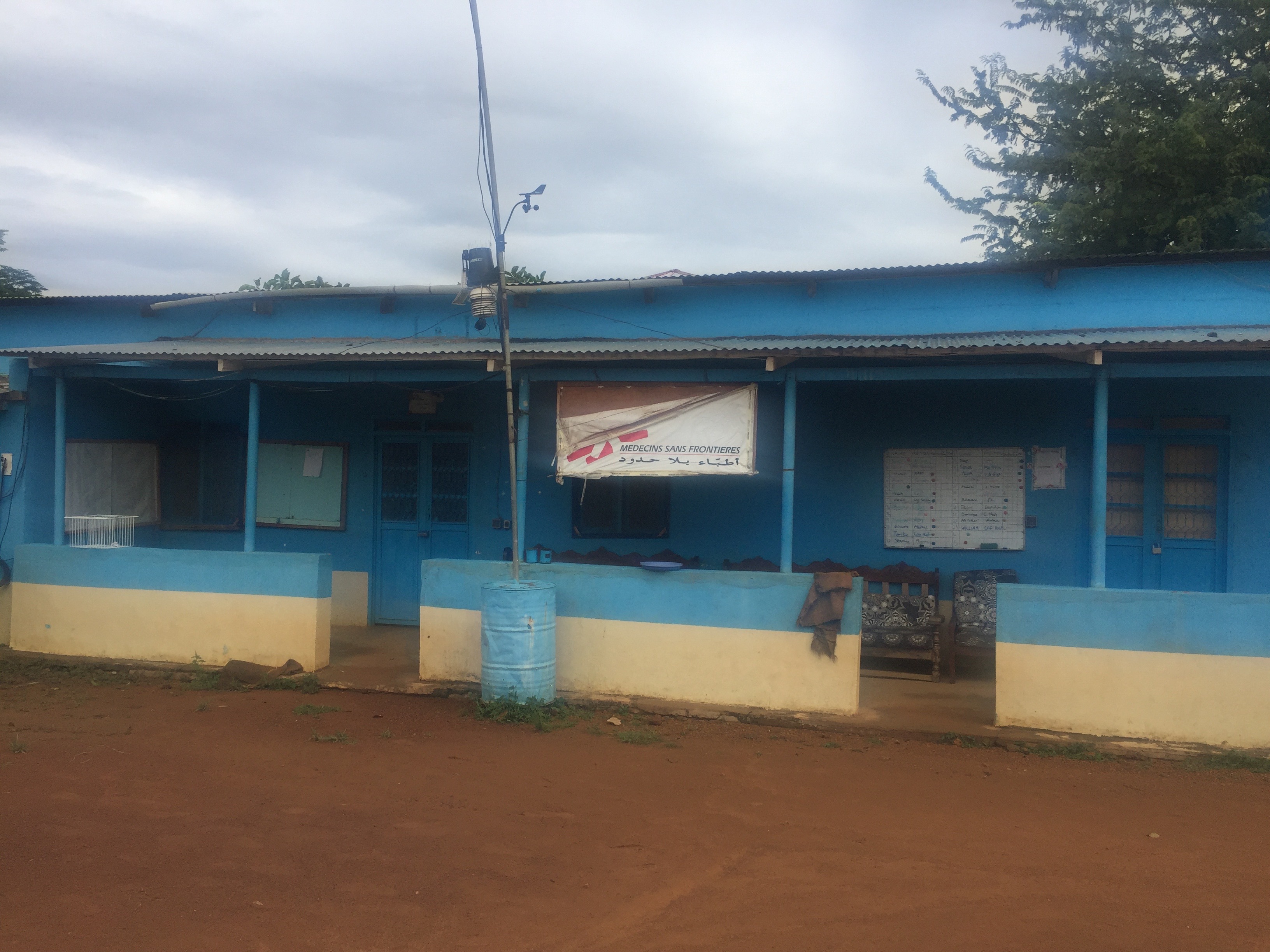
There is a shortage a surgical providers in Sub-Saharan Africa, and especially in countries that do not provide access to formal surgical training programs, such as South Sudan. One of the potential solutions to this shortage of providers is training and validating non-surgeon physicians (NSP) to perform surgical procedures, which is called task-shifting or task-sharing. In 2019, a partnership between MSF Operational Center Paris (OCP) and UBC-BGSC was formalized to create a surgical task-sharing curriculum, in order to help build capacity in MSF-surgical projects in South Sudan, with a Memorandum of Understanding signed in March 2021.
A team of UBC affiliated professors designed an Essential Surgical Skills (ESS) curriculum, targeted for implementation in Aweil, South Sudan. Experienced specialists were chosen for designing each module, based on their expertise in their field as well as global surgery experience.
In May 2019, an MSF surgeon-trainer was deployed to Aweil, on a one-year contract, to support the ESS training program. In June 2019, three clinical officers working at Aweil hospital were recruited to the ESS training program, based on their medical knowledge (successful completion of pre-test) and motivation to pursue further surgical training.
The training officially began July 1, 2019. This project is led by BGSC Associate Director, Dr. Emilie Joos, who was scheduled to travel to Aweil in March 2020 to supervise and
support the training program, however this was cancelled due to COVID-19. Most of the training is online and was completed as planned in December 2021.
A five-year memorandum of understanding between UBC Department of Surgery and MSF-France has been signed in 2021 which will pave the way for continued collaboration in the future. The team is now in the planning stages to replicate the program in French in the Central African Republic (CAR) in 2022.
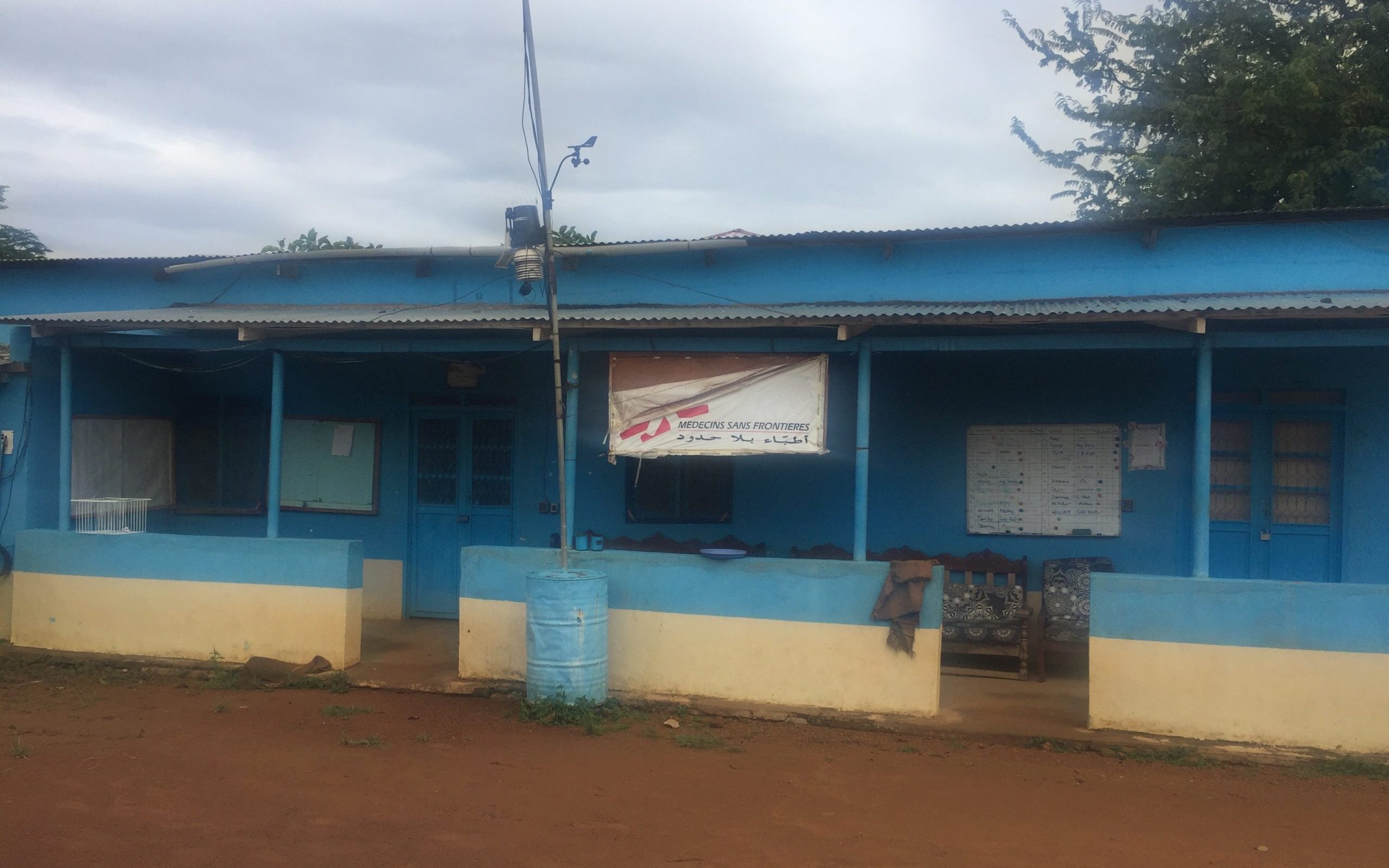
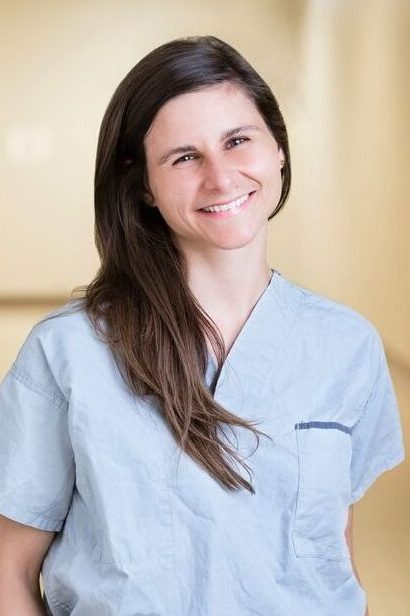 Project leader: Dr. Emilie Joos
Project leader: Dr. Emilie Joos
Dr. Emilie Joos is a practicing general surgeon and trauma surgeon at Vancouver General Hospital. At the completion of her surgical critical care training, she was appointed as a clinical instructor in trauma at University of Southern California. Dr. Joos participated in a volunteer mission to Haiti with the Medishare project, where she taught basic trauma care to local healthcare providers.
Dr. Joos completed a Masters in Global Health Policy at the London School of Hygiene and Tropical Medicine in 2019. She has been working with Médecins Sans Frontières since 2015 and was deployed several times in Sub-Saharan Africa. In 2017 she completed her Emergency Response Unit training with the Canadian Red Cross and is now on the roster for deployment. Dr. Joos is the Associate Director of the UBC Branch for Global Surgical Care and the Trauma and Acute Care Surgery Fellowship program director, instructor for the Advanced Surgical Skills for Exposure in Trauma, and Advanced Trauma Life Support course director.
INDIA
Across the globe, many women suffer from stigma associated with disfiguration, socially excluding injuries, and trauma often inflicted on them for reasons due to their ethnicity, social traditions or typical environmental conditions surrounding them. Reconstructing Women International program is aimed to treat patients in their local communities by international women plastic surgeons through the use of local medical facilities. This is done through the collaboration of local medical professionals, national plastic surgical societies, or other existing specific plastic surgery bodies.
Project leader: Nancy Van Laeken
 Dr. Nancy Van Laeken is a Clinical Professor in the Division of Plastic Surgery at UBC. She is an active Plastic Surgery staff member at many lower mainland hospitals, to include PHC, LGH, VA and BCCH. She also travels to Bella Bella and Bella Coola in remote BC twice a year to treat patients. Dr. Van Laeken has been participating in humanitarian work overseas (India, Africa and Bangladesh), for the past 7 years, with the organization Reconstructing Women International and she visited the Phillipines in 2011 with Health for Humanity.
Dr. Nancy Van Laeken is a Clinical Professor in the Division of Plastic Surgery at UBC. She is an active Plastic Surgery staff member at many lower mainland hospitals, to include PHC, LGH, VA and BCCH. She also travels to Bella Bella and Bella Coola in remote BC twice a year to treat patients. Dr. Van Laeken has been participating in humanitarian work overseas (India, Africa and Bangladesh), for the past 7 years, with the organization Reconstructing Women International and she visited the Phillipines in 2011 with Health for Humanity.
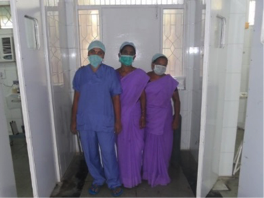
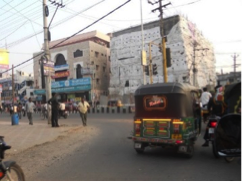
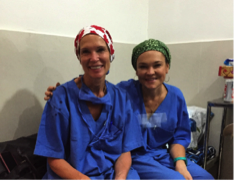
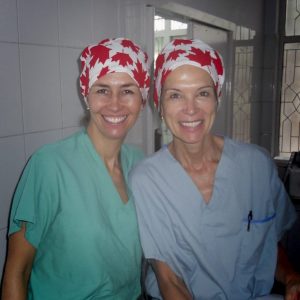 Support continued expansion of our partnership with Reconstructing Women International and our shared vision of realizing surgical care access across the globe. Help local medical facilities and international women plastic surgeons collaborate to deliver treatment together. Have a profound impact on women suffering from injuries and trauma often inflicted on them as a result of their ethnic background, social traditions, or environmental conditions.
Support continued expansion of our partnership with Reconstructing Women International and our shared vision of realizing surgical care access across the globe. Help local medical facilities and international women plastic surgeons collaborate to deliver treatment together. Have a profound impact on women suffering from injuries and trauma often inflicted on them as a result of their ethnic background, social traditions, or environmental conditions.
We are pleased to be partnering with the Reconstructing Women International Organization through the continued dedication of our advisory committee member Dr. Nancy VanLaeken.
To make a donation towards our partnership with Reconstructing Women International, please click on the button below:
Past Projects
INDONESIA
Collaborations between UBC, Vancouver General Hospital, Ministry of Health in Indonesia and the National Brain Center (PON) have been fostered at the request from the Foundation for International Education for Neurological Surgery (FIENS) for assistance with Institutional Specialty Expertise development. The institute located in Jakarta is a national resource known as being one of the top national centers in Indonesia. It strives to meet international standards and to provide the highest quality of care for Indonesia. On a national scale, development of skills and expertise will greatly impact the scope and quality of care for neurological conditions. The Clinical components include Neurology, Neurosurgery, Critical Care, Anesthesiology and Physiatry.
Project leaders: Brian Toyota, David Fairholm
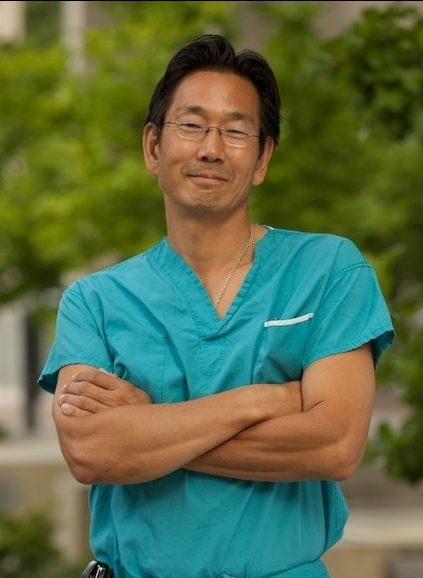 Dr. Brian Toyota is an Assistant Professor in the Division of Neurosurgery at UBC. He is currently staffed at Vancouver General Hospital (VGH) and the BC Cancer Agency. He was the Residency Program Director, Co-Chair of the BCCA/Vancouver Stereotactic Radiosurgery Program, Provincial Chair of Neuro-oncology for the BCCA, and President of the Canadian Neurosurgical Society. He is currently the project leader for the collaboration between UBC and the National Brain Center (PON) in assisting with Institutional Specialty Expertise development in Indonesia.
Dr. Brian Toyota is an Assistant Professor in the Division of Neurosurgery at UBC. He is currently staffed at Vancouver General Hospital (VGH) and the BC Cancer Agency. He was the Residency Program Director, Co-Chair of the BCCA/Vancouver Stereotactic Radiosurgery Program, Provincial Chair of Neuro-oncology for the BCCA, and President of the Canadian Neurosurgical Society. He is currently the project leader for the collaboration between UBC and the National Brain Center (PON) in assisting with Institutional Specialty Expertise development in Indonesia.
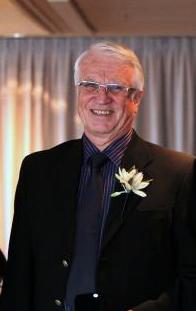 Dr. David Fairholm is a Neurosurgeon and a Clinical Professor at the University of British Columbia. Internationally, he has been influential in establishing a broad range of clinical education programs and reform initiatives in Taiwan and in Indonesia. Currently, Dr. Fairholm is Executive Dean at Pelita Harapan University where he is providing advisory services in clinical education reform and administration. He is a member of the Foundation for International Education in Neurological Surgery and held the position of Secretary to the Board for eight years.
Dr. David Fairholm is a Neurosurgeon and a Clinical Professor at the University of British Columbia. Internationally, he has been influential in establishing a broad range of clinical education programs and reform initiatives in Taiwan and in Indonesia. Currently, Dr. Fairholm is Executive Dean at Pelita Harapan University where he is providing advisory services in clinical education reform and administration. He is a member of the Foundation for International Education in Neurological Surgery and held the position of Secretary to the Board for eight years.
MEXICO
In 2015, BGSC Faculty conducted preliminary environmental scans in Mexico City. Another BGSC team later conducted a trauma needs assessment and consultation there prior to the initial bilateral exchange in Mexico City with the Canadian Collaborative Center of Excellence for Global Humanitarian Surgical Care in 2017. The CCCEGHSC) was created in 2015, and is made of the three following partners: The Canadian Red Cross (CRC), McGill Centre for Global Surgery, and UBC's Branch for Global Surgical Care.
The Canadian/Mexican General Surgery residents participate in a clinical exchange in Mexico City/Vancouver, at the Mexican Red Cross Hospital Polanco/Vancouver General Hospital. Under the direction and reporting to the Chief of Surgery, residents will complete 1-2 month clinical rotations at Hospital Polanco, a Mexican Red Cross Hospital and designated Red Cross trauma hospital for the region. Hospital Polanco provides humanitarian surgical care, as they accept and treat patients who do not have alternative health coverage.
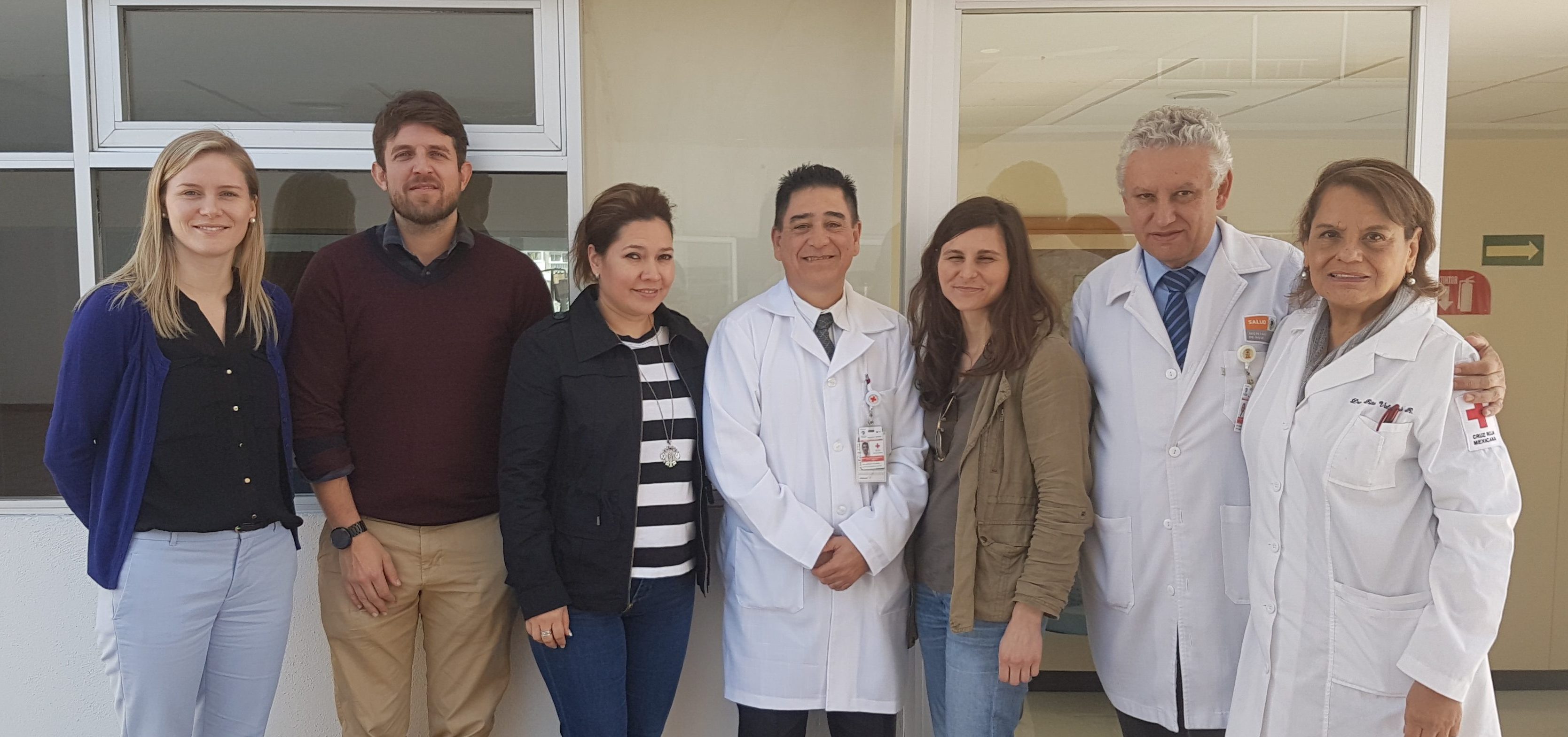
- The clinical exchange program promotes an understanding of global surgery, enhances surgical skills and trauma system knowledge, and uses data to improve health access, outcomes, and knowledge.
- Residents can also participate in a non-clinical exchange to complete a research, performance, or other skill-related exchange with clear objectives that ensure fulfillment of a mutually agreed upon need and focus of the Mexican Red Cross.
- The non-clinical exchange program for Canadian trainees to Mexico improves access and quality of surgical care and the rigor of research methods applied in Hospital Polanco.
- Eligibility: enrolled in a General Surgery residency, R3 or above, with basic Spanish comprehension and an interest in global surgery. Preference will be given to residents who combine the exchange with their research year. Interested applicants from UBC can apply for Branch Research Awards.
- Applications are considered year-round. Contact us (global.surgery@ubc.ca) for more information or for details on the application package requirements.
Project leaders: Ross Brown, Emilie Joos
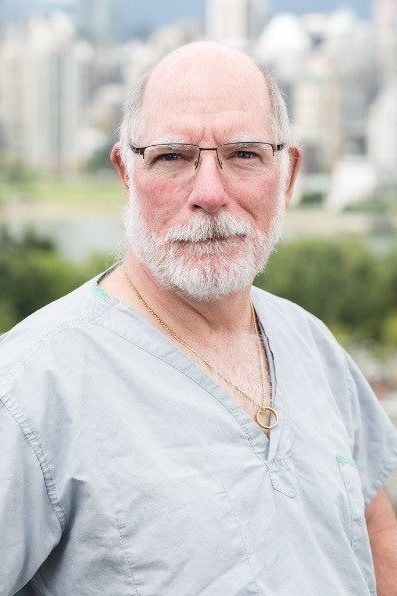 Dr. Ross Brown is a Clinical Professor, Department of Surgery, UBC, and is a practicing general surgeon and trauma surgeon at Vancouver General Hospital. He is also an Associate Medical Director of the Canadian Forces Trauma Training Centre (West). He has completed two tours in Bosnia and three in Afghanistan. In 2010, Dr. Brown was seconded to the Vancouver Olympic Committee to support the Olympic and Paralympic Games, managing the Whistler Polyclinic, which included the Mobile Medical Unit.
Dr. Ross Brown is a Clinical Professor, Department of Surgery, UBC, and is a practicing general surgeon and trauma surgeon at Vancouver General Hospital. He is also an Associate Medical Director of the Canadian Forces Trauma Training Centre (West). He has completed two tours in Bosnia and three in Afghanistan. In 2010, Dr. Brown was seconded to the Vancouver Olympic Committee to support the Olympic and Paralympic Games, managing the Whistler Polyclinic, which included the Mobile Medical Unit.
 Dr. Emilie Joos is a practicing general surgeon and trauma surgeon at Vancouver General Hospital. At the completion of her surgical critical care training, she was appointed as a clinical instructor in trauma at University of Southern California. Dr. Joos participated in a volunteer mission to Haiti with the Medishare project, where she taught basic trauma care to local healthcare providers. She is an instructor for the Advanced Surgical Skills for Exposure in Trauma and an Advanced Trauma Life Support course director.
Dr. Emilie Joos is a practicing general surgeon and trauma surgeon at Vancouver General Hospital. At the completion of her surgical critical care training, she was appointed as a clinical instructor in trauma at University of Southern California. Dr. Joos participated in a volunteer mission to Haiti with the Medishare project, where she taught basic trauma care to local healthcare providers. She is an instructor for the Advanced Surgical Skills for Exposure in Trauma and an Advanced Trauma Life Support course director.
ETHIOPIA
The Urology Project kicked off with a needs assessment and consultation at Gondar Univ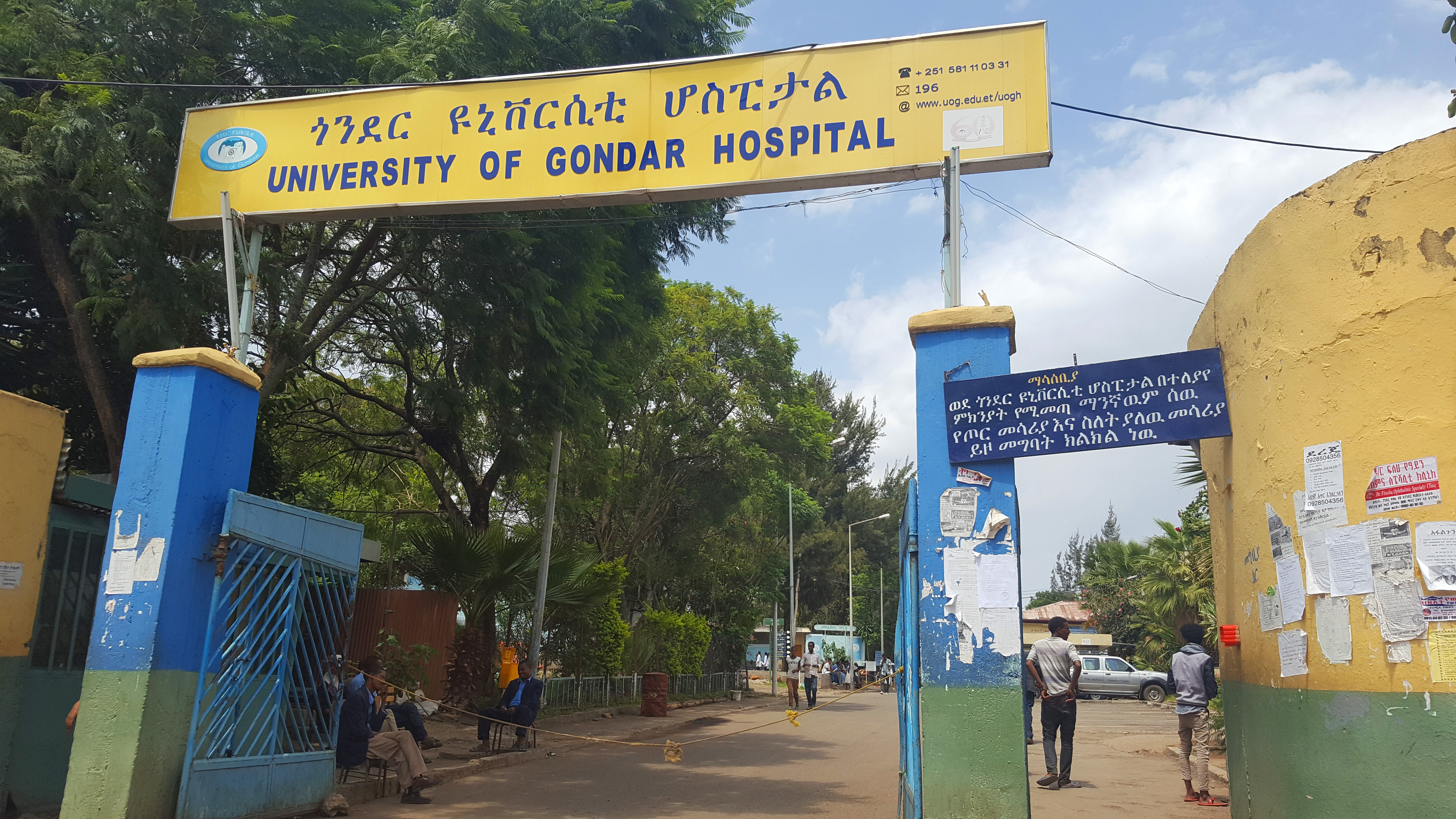 ersity Hospital (GUH) in December 2013. To address the high burden of urologic cases and shortage of surgeons with additional training in Urology, Ethiopia and Branch teams have recruited an additional surgeon to sub-specialize in Urology. The proposed clinical Urology program included introduction of endoscopic skills, acquisition of a functioning CT scan, and development of a Stone Centre at the new, renovated GUH facilities. Also proposed were undergraduate and postgraduate training programs to institute formal urologic training curriculum, including tele-education and bilateral exchange training opportunities.
ersity Hospital (GUH) in December 2013. To address the high burden of urologic cases and shortage of surgeons with additional training in Urology, Ethiopia and Branch teams have recruited an additional surgeon to sub-specialize in Urology. The proposed clinical Urology program included introduction of endoscopic skills, acquisition of a functioning CT scan, and development of a Stone Centre at the new, renovated GUH facilities. Also proposed were undergraduate and postgraduate training programs to institute formal urologic training curriculum, including tele-education and bilateral exchange training opportunities.
Project leader: Mark Nigro
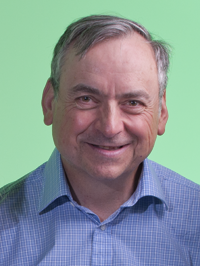 Mark Nigro is a Clinical Professor in the Department of Urologic Sciences at UBC. He is also a Principal Investigator at ICORD, the Director of the Provincial Organ Retrieval Program, Surgical Director of Renal Transplant at the Vancouver General Hospital, and Co-Director of the Vancouver Ejaculatory Dysfunction Clinic. His research interests include infertility and urologic prosthetics with focus on adult urologic cases and special interest in organ transplantation. Dr. Nigro works with many hospitals as a member of the Consultant Staff at the Children’s & Women’s Health Centre of British Columbia, St. Paul’s Hospital, GF Strong Centre, and Pearson Hospital.
Mark Nigro is a Clinical Professor in the Department of Urologic Sciences at UBC. He is also a Principal Investigator at ICORD, the Director of the Provincial Organ Retrieval Program, Surgical Director of Renal Transplant at the Vancouver General Hospital, and Co-Director of the Vancouver Ejaculatory Dysfunction Clinic. His research interests include infertility and urologic prosthetics with focus on adult urologic cases and special interest in organ transplantation. Dr. Nigro works with many hospitals as a member of the Consultant Staff at the Children’s & Women’s Health Centre of British Columbia, St. Paul’s Hospital, GF Strong Centre, and Pearson Hospital.
